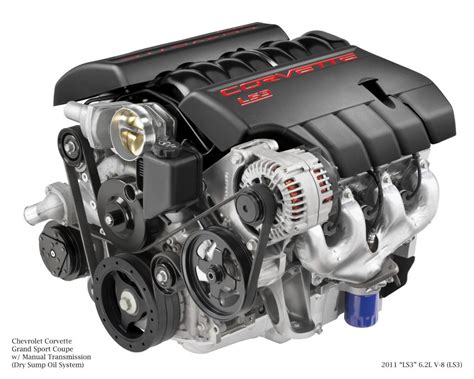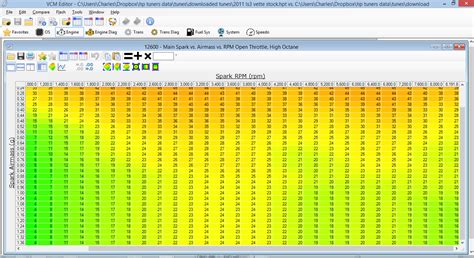Discover the essentials of LS3 engine timing, factors influencing adjustments, and tips for optimization to enhance your vehicle’s performance.**Blog Title: Understanding Ls3 Engine Timing Adjustments**
When it comes to maximizing the performance of your LS3 engine, understanding timing adjustments is crucial. Timing plays a vital role in how efficiently your engine runs, impacting everything from power output to fuel economy. In this blog post, we will break down the essentials of LS3 engine timing, starting with the basics that underpin its operation. We’ll explore the various factors that affect timing adjustments, including engine load, fuel quality, and ignition system design. Lastly, we’ll provide insights on how to optimize timing for enhanced performance, ensuring your LS3 engine operates at its peak. Whether you’re a seasoned mechanic or a car enthusiast looking to fine-tune your ride, this guide will equip you with the knowledge needed to make informed timing adjustments for your LS3 engine.
Ls3 Engine Timing Basics

The LS3 engine is known for its robust performance and ability to deliver power effectively. Understanding the timing in an LS3 engine is crucial for optimizing its performance and ensuring longevity. Timing adjustments can significantly impact the engine’s efficiency, power output, and responsiveness.
The camshaft plays a vital role in the timing of the LS3 engine. It controls when the valves open and close, which is crucial for the engine’s air and fuel intake process. Adjusting the timing of the camshaft can lead to improved throttle response and better fuel efficiency.
Another aspect of timing involves the ignition timing. This refers to when the spark plug fires in relation to the position of the piston. Proper ignition timing maximizes combustion efficiency, preventing misfires and knocking, which can lead to engine damage. The timing needs to be precise for the LS3 engine to perform at its best.
In conclusion, understanding the basics of timing in the LS3 engine is key to making effective adjustments. Both camshaft and ignition timing contribute to the overall performance, so careful tuning in these areas can lead to substantial benefits.
Factors Affecting Timing Adjustments

When it comes to making timing adjustments in an LS3 engine, several crucial factors can influence the optimal settings. Understanding these factors can significantly improve your engine’s performance, efficiency, and overall durability.
One of the primary aspects to consider is the engine load. Under varying conditions of load—such as idle, cruising, or full throttle—the timing requirements can dramatically change. Adjusting the timing based on these conditions allows the engine to run more efficiently, improving both power and fuel economy.
Another vital component is the fuel quality being used. Higher octane fuels can withstand more aggressive timing adjustments without causing knocking, enabling better performance. Conversely, lower-quality fuels may necessitate a more conservative tuning approach to prevent engine damage.
Additionally, ambient temperature also plays a significant role in timing adjustments. Warmer temperatures can lead to reduced air density, which may result in a need for different timing settings to optimize combustion efficiency. Understanding how these components interact with your specific setup will help you achieve the best performance from your LS3 engine.
| Factor | Effect on Timing |
|---|---|
| Engine Load | Requires adjustments for optimal performance at different RPMs. |
| Fuel Quality | Higher octane allows for more aggressive timing adjustments. |
| Ambient Temperature | Affects air density, necessitating different timing settings. |
Optimizing Ls3 Engine Timing

When it comes to achieving peak performance in the Ls3 engine, understanding how to optimize the timing settings can make a significant difference. Properly configured timing not only enhances engine efficiency but also maximizes power output and improves throttle response.
There are several factors to consider when optimizing the timing for the Ls3 engine. One primary factor is the fuel type being used. Different fuel grades have unique combustion characteristics, which can affect the timing adjustments. For instance, higher octane fuels allow for more aggressive timing because they can withstand higher pressure without knocking.
Another critical aspect is the engine load and RPM range. Timing should be adjusted based on the specific operating conditions of the vehicle to ensure smooth performance across all speeds. Here’s a brief overview of factors that affect timing adjustments:
| Factor | Effect on Timing |
|---|---|
| Fuel Type | Higher octane fuels allow for advanced timing. |
| Engine Load | Higher load may require retarding timing to prevent knock. |
| Ambient Temperature | Hotter temperatures may necessitate lower timing. |
| Altitude | Higher elevations typically require timing adjustments. |
Finally, data logging and monitoring during test runs is essential for fine-tuning your timing settings. Utilizing tools like a wideband O2 sensor and knock sensors can provide valuable feedback on how your adjustments are performing in real-time. By regularly checking performance metrics, you can continuously refine your Ls3 engine timing, ensuring optimal performance and reliability.
Frequently Asked Questions

What is the LS3 engine?
The LS3 engine is a 6.2L V8 engine produced by General Motors as part of the LS family, known for its high performance and efficiency.
Why are timing adjustments important for the LS3 engine?
Timing adjustments are crucial as they affect engine performance, fuel efficiency, and emissions, ensuring optimal operation under various conditions.
How can I tell if my LS3 engine timing needs adjustment?
Signs that your LS3 engine timing may need adjustment include poor acceleration, engine knocking, reduced fuel efficiency, or engine misfires.
What tools are needed to adjust the timing on an LS3 engine?
To adjust the timing on an LS3 engine, you will typically need a timing light, a tachometer, and possibly a computer interface for advanced tuning.
Can timing adjustments be made without professional help?
While some enthusiasts can make timing adjustments themselves with the right tools and knowledge, it is often recommended to consult with a professional for optimal results.
What is the role of the ECU in timing adjustments for the LS3 engine?
The ECU (Engine Control Unit) plays a pivotal role in managing engine timing by controlling ignition and fuel timing based on various sensor inputs.
What are the risks of incorrect timing adjustments on an LS3 engine?
Incorrect timing adjustments can lead to engine knocking, reduced power, increased fuel consumption, and in severe cases, engine damage or failure.